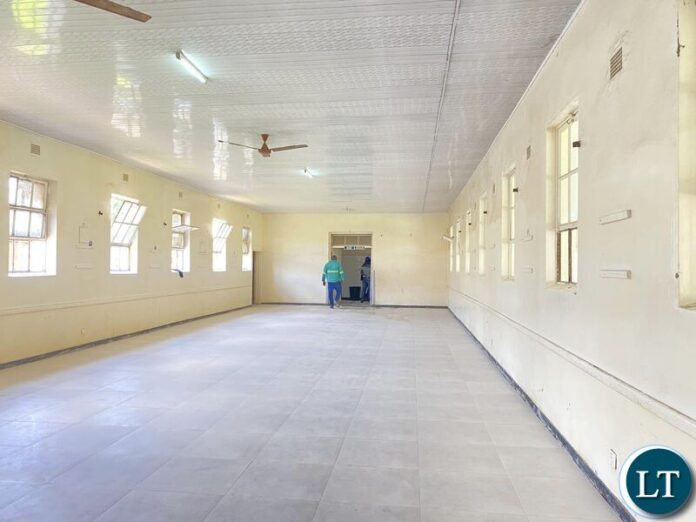Several associations which represent a network of over 200 private clinics, hospitals and pharmacies have teamed up to form the Healthcare Federation of Zambia (HFZ) in a bid to strengthen communication and collaboration among public and private sector partners.
HFZ has attracted stakeholders that include Zambia Association for Private Hospitals (ZAPH), Zambia Pharmaceuticals Business Forum (ZPBF), Alliance for Private Health Providers (APHP), Zambia Medical Association (ZMA), Pharmaceutical Society of Zambia (PSZ), Kitwe Private Health Practitioners Association, Kabwe Medical Practitioners Association (KMPA), International Association of Public Health Logisticians (IAPHL) – Zambia Chapter, Livingstone Private Health Sector Association, Choma Private Health Sector Association and Ndola Private Sector Association among others.
Minister of Health Sylvia T. Masebo on Tuesday morning officially opened the Healthcare Federation of Zambia that will also build capacity for the private sector to deliver accessible, quality health products and services in Zambia.
In her speech, Ms. Masebo said although the private sector plays a central and fundamental role in delivering health products and services in Zambia, it is not well coordinated within the private space.
The Chongwe Member of Parliament said the private health sector has emerged as an important source of resources necessary for attaining Universal Health Coverage (UHC).
“I feel privileged to be here to officially launch the Healthcare Federation of Zambia (HFZ) as a platform for public-private sector dialogue and coordination. This federation was formed after realizing the gaps and opportunities in the public-private health sector collaborations. The USAID Zambia Accessible Markets for Health (ZAM-Health) Project has been instrumental in spear-heading the HFZ formation and I thank you. The HFZ indeed will be a critical partner to the government in health service delivery. The Governmentof the Republic of Zambia is committed to the attainment of Universal Health Coverage (UHC), an aspiration of all United Nations (UN) member countries. As countries in sub-Saharan African (SSA), we face resource constraints as a major limiting factor to deliver Universal Health Coverage. As we know, Universal Health Coverage is only reached when we provide access for the whole population to good-quality health services without the risk of financial hardship. Due to this realization, we have to devise means of overcoming health access financial challenges while we encourage those that have no limitation to chip in for the poor,” Ms. Masebo said.
HFZ was registered by the Registrar of Societies as a legal entity under the Societies Act Number 119 of the laws of Zambia in March 2023.
“The private health sector has emerged as an important source of resources necessary for attaining UHC, complementing the public sector. As a result, health services in UN member countries are increasingly being delivered through a mixed health system of public and private providers. This is by using a total market approach (TMA). A total market approach is a strategy that leverages the complementary roles of all sectors to expand the overall market for priority health products and services. Although the private sector plays a central and fundamental role in delivering health products and services in Zambia, it is not well coordinated within the private space. It is also further not well coordinated in its collaboration with the Ministry of Health. As such, the private sector does not fully participate in delivering essential health care. For this reason, private sector health providers are often left out of critical training and formulation of health policies. The uncoordinated activities impact the efficiency of service delivery. They also often lead to a duplication of efforts and wastage of funding, thus slowing progress in meeting national and global targets,” she said.
Ms. Masebo said the COVID-19 pandemic provided an opportunity for public-private collaboration and revealed prospects for long-term coordination between the sectors.
“The multi-sectoral platform created to ensure a coordinated response to the pandemic showed the potential for long-term collaboration. It further proved that there is value in information exchange for improved service delivery. For this collaboration to extend beyond the COVID-19 pandemic there is a need for integrated efforts for synergy across all healthcare services. This collaboration will require the development of trust among parties, deep investment in the careful matching of private sector capacities with public sector needs, alignment of roles and processes to support the translation and adaptation of tools and practices from one sector to the other. The objective of HFZ is to enhance participation of the private sector in delivery of healthcare services through a well-coordinated policy advocacy mechanism and regular public-private sector dialogue. The Federation will also act as a platform for business networking and sharing of best practices among private healthcare players. This will be within and across the borders of our country, and between the public and private sectors,” the Minister of Health said.


